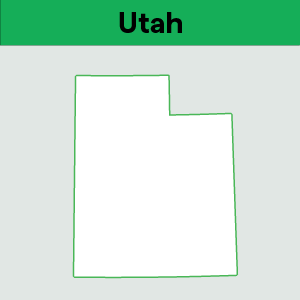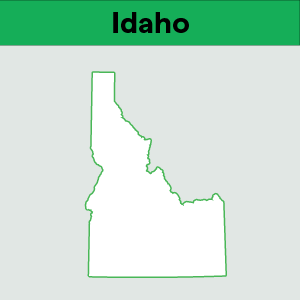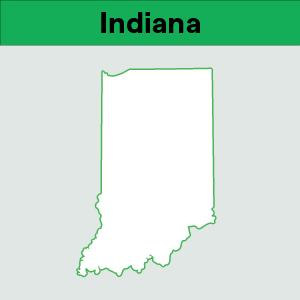Income tax nexus and sales tax nexus: Is there a difference?
by December 2, 2024
A state attempting to force a non-resident business to comply with any provision of its tax code must first obtain “jurisdiction” over this taxpayer that gives the state the legal right to make such a request. We commonly refer to this jurisdictional test as “nexus.” That is, if a nonresident business has nexus with a state, that state has jurisdiction to require some type of tax compliance from the company. The taxes most affected by the nexus concept are sales tax, income based taxes, capital based taxes, and gross receipts taxes.
Sales tax nexus
Without getting into the minutia of the 60 year history of state sales tax nexus, for this blog I simply suggest that sales tax nexus is created in a foreign state when the seller creates some type of physical connection with that state. This physical connection can be direct or indirect. Direct physical connections involve sending employees into the state, having property in the state, or performing services in the state. Indirect physical connections involve the use of agents or independent contractors to do the things that employees would do. Using independent contractors to solicit sales creates nexus in the same way that using employees to solicit sales! If these activities occur on a systematic or recurring basis in one or more states, then the seller of property or the provider of service will likely have nexus in the states where these activities occur.
However, (and this is the important part), just because your business has nexus in a state does not mean that your company actually has a collection and tax filing obligation. Having nexus in the state merely means that state can legally request information from you concerning your obligations. Your actual obligation to register with the state and to collect tax depends on what products you sell and the services you provide.
Having nexus with a state but selling products or services that are not taxable in the state would likely mean that your company has no ongoing compliance obligation. Further, having nexus in a state but selling products only to wholesalers or other retailers may mean that your company’s obligation is to collect resale exemption certificates from customers.
Income tax nexus
Before I discuss the rules for income tax nexus, it’s important to understand what an ‘income tax’ is and what it is not. The courts have written extensively about this issue. In short, the income tax rules below apply to taxes that are directly computed on the “taxable income” of the entity or the “taxable income” passed through to the shareholders, partners, or members if the entity is not directly taxable. Forty-five states currently have some form of “income tax.” These taxes are applied differently depending on the nature of the legal entity. Corporations are often taxed differently than LLCs or partnerships in these states. In states like Florida that do not tax individual income, there is a difference in the tax paid between nonresident “C” corporations and nonresident “S” Corporations.
Taxes that are imposed on the “gross receipt” or the net worth of a company are not income taxes. These are discussed in another section of this entry.
Prior to 1959, the nexus rule for income tax was pretty much the same as for sales tax. That is, any type of physical activity or connection with a state could allow that state to require the taxpayer to file an income tax return and to pay income tax bases on some allocation of income to the state. The burden of this became so severe that Congress passed legislation establishing when a state could impose its ‘income tax’ on nonresident companies and their owners. This law is commonly referred to as Public Law 86-272 (P.L. 86-272). This federal provision is still the law and allows companies to perform the following activities in a state without creating income tax nexus:
- Solicit sales of tangible personal property (directly or indirectly)
- Provide services that are ancillary to the sales of property
- Have samples for display in the state and have other property used for sale in the state (cars, computers, etc.)
- Orders are accepted and fulfilled outside of the state
Activities that exceed these “safe harbor” activities will create income tax nexus in the state. The following are examples of activities that will create income tax nexus:
- Selling services and not personal property,
- Providing services in the state,
- Accepting orders in the state,
- Delivery of property into the state on company vehicles,
- Accepting deposits in the state,
- Repossessing property in the state, or
- Having inventory in the state.
Other tax types
In addition to the imposition of income taxes, many states have franchise taxes that are based on the amount of capital or net worth apportioned to the state. Further, Texas imposes a margins tax on most forms of business operating in the state, Ohio imposes the commercial activity tax “CAT,” and Washington imposed the Business and Occupation “B&O” tax. These are not income taxes! As such, the sale tax nexus standards discussed above will generally apply to these types of taxes. The immunity rules of P.L. 86-272 DO NOT apply to these taxes.
Scenarios
With this framework in place, let’s take a look three basic scenarios.
Scenario 1:
Corporation is headquartered in Illinois but sends employees into Wisconsin, Missouri, Indiana, and Ohio to sell office furniture directly to business users. Property is shipped to customers from the Illinois warehouse via common carrier and all orders are approved in Illinois.
Company has sales tax nexus in Wisconsin, Missouri, Indiana, and Ohio because salesmen have entered the state to make sales of property. Tax must be collected on the sale of office furniture because it is being sold directly to corporate users and not to wholesalers. Company does not have income tax nexus in Wisconsin, Missouri, or Indiana because it’s activities are within the safe harbor of P.L. 86-272. In Ohio, which has a gross receipts tax called the “commercial activity tax” (CAT), the company will have nexus for this tax because the CAT is not an income tax and the provisions of P.L. 86-272 do not apply.
Scenario 2:
Corporation is headquartered in Illinois but sends employees into Wisconsin, Missouri, Indiana, and Ohio to sell office furniture directly to business users. Property is shipped to customers from the Illinois warehouse via common carrier and all orders are approved in Illinois. Company also arranges with a company in each state to assemble and set up the furniture that is delivered to each customer. The charge for this assembly and installation is embedded into the selling price of the furniture.
Company has sales tax nexus in Wisconsin, Missouri, Indiana, and Ohio because salesmen have entered the state to make sales of property. Tax must be collected on the sale of office furniture because it is being sold directly to corporate users and not to wholesalers. Tax must be collected on the full selling price including the assembly because these charges are not separately stated on the invoice.
Company also has income tax nexus in Wisconsin, Missouri, and Indiana because its activities exceed the safe harbor of P.L. 86-272. Performing any type of service in a state, directly or indirectly, creates income tax nexus in the state. It makes no difference whether the service is mandatory or optional. The Ohio CAT would also be due.
Scenario 3:
Corporation is headquartered in Illinois but sends employees into Wisconsin, Missouri, Indiana, and Ohio to sell office furniture directly to wholesalers. Property is shipped to customers from the Illinois warehouse on company owned vehicles. All orders are approved in Illinois.
Company has sales tax nexus in Wisconsin, Missouri, Indiana, and Ohio because salesmen have entered the state to make sales of property. Because the furniture is sold to wholesalers, the company does not need to collect sales tax from the customers. It must, however, collected and retain valid resale exemption certificates from its customers. The failure to collect these certificates would make these sales taxable if the company were ever audited.
Company also has income tax nexus in Wisconsin, Missouri, and Indiana because its activities exceed the safe harbor of P.L. 86-272. Delivery of property into a state on company owned vehicles creates nexus under P.L. 86-271. Even though the sales are made to wholesalers, the company is subject to income tax in Wisconsin, Missouri, and Indiana. The Ohio CAT would also be due.
Conclusion
For multistate businesses understanding the nuances between sales tax, capital tax, gross receipts tax, and income tax nexus can be mind-numbing. Companies with multistate operations should routinely conduct nexus studies to make sure that their compliance procedures are sufficient. Failing to understand these rules can create significant liabilities that can attach to the owner personally.
If you are concerned that your sales tax nexus may also create income tax nexus, we highly suggest you contact a sales tax expert to investigate your liability.
Are you ready to automate sales tax? To learn more about TaxJar and get started, visit TaxJar.com.








